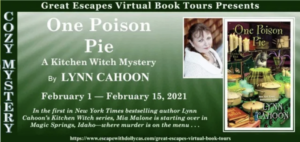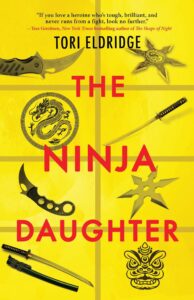You are a decorated Veteran of the Vietnam War, how did that experience most impact how you see the world?
The short answer is it changed everything. I sincerely mean that. My life has never been the same and it is truly the gift that goes on giving. Each time in my life I have delved deep into my experiences and emotions in therapy or therapeutic type opportunities I have thought—“OK now it is done and I won’t have to do that again.” That thought was never true. There was always more.
I saw the war as very wrong and destructive. It was destructive to the land and people of Vietnam and to our soldiers, nurses, doctors, and it was such a waste. There was nothing redeeming about the war or what it wrought. We even left live landmines in the earth that to this day are killing children playing and farmers working the land.
I began to see everything through that prism and became a peace activist and never wanted our country to go to war again.
I also became a wounded healer in my work and was passionate about PTSD—learning about it and healing it. As a wounded healer I knew the experiences deeply my self as well as from the professional perspective. I could literally go into the foxhole with my clients and sit with them through the worst of their experiences and emotions. Most therapists cannot and do not do that—they stay professional and apart from the intense emotions that come up in PTSD. I had my own PTSD with flashbacks and nightmares, so I know. I also went though the reliving of my experiences, survived it again and came out more whole and healed. I came up with my own techniques to suit what I needed and it worked. That gave me tools to work with others that I know worked.
My greatest transformation from my Vietnam Experiences came in 1996 when I went back to Vietnam to plant peace trees. I returned to Cu Chi where I was stationed as an operating room nurse at the 12th Evacuation Hospital. The hospital was of course not there but I went to the tunnels. While there, a soldier with the communist military demonstrated all their booby traps that they used on our soldiers. They used a piece of wood to show what they did to a leg for example. It was excruciating for me to watch that and listen to him describe it. I started to take deep breaths and I went inside and asked God this question: “If we were at a fort in the U.S. and they were describing how they won a battle or war and were proud— what would that be like?” The answer was: “the same.” Then I asked: “What is the difference?” As soon as I asked that last question I was suddenly filled and surrounded by a bright Light and Love, and was fully aware that between that communist soldier and me there was no essential spiritual difference. That healing and transformation has never left me and to this day I am filled with that knowing that we are all ONE and there is no reason to attack or hurt anyone, because it will affect all of us. Whatever we do affects us all.
What led you to write Women Under Fire?
Writing Women Under Fire: Abuse in the Militarywas my soul’s mission to bring justice into that world. I had awareness of that mission for many years but never had a clue how to fulfill it. In 2006 while talking with a very intuitive woman, I was given guidance on how to fulfill that mission. Write about women in the military. I set out to do that without realizing the connection to justice. I turned to the Divine with a challenge. “It this is what you wish me to do I need a title I can get behind and that will inspire me, and I need to know I can write.” I brainstormed titles and when I had them all written down I looked at the list and one of them lit up: Women Under Fire.
It did what I asked. I felt passionate about it and was inspired by it every time I looked at it or said it. Then I sat down at the computer and said: “OK show me that I can write. Let’s write an introduction.”
My fingers went flying across the keys and when I had written a few pages of an introduction I stopped to read it and was blown away by the power and intensity in the words. At that point I said to the Divine: “OK let’s do this thing.”
Describe your experience of working with these women’s stories.
I began a quest to find women veterans who would talk to me about their experiences. I was interested in any woman veteran from any branch of the military and any time period. I had no preconceived ideas. I wanted all their stories no matter what they were. I interviewed most of them over the phone but if they were local I went to them in person. The oldest was an 85 year-old WWII veteran who was a feisty little woman who had been a journalist after the war. I came to know these women and their stories. I had a set of questions
that I asked each woman to be consistent. If they had some emotionally difficult situations to recall, I held them energetically as they shared and if they were triggered, I stopped the interview and helped them let it go, calm down and relax. If they were able to go on, we did, and if they could not, we rescheduled the rest of the interview. I also checked back with them to see how they were doing.
that I asked each woman to be consistent. If they had some emotionally difficult situations to recall, I held them energetically as they shared and if they were triggered, I stopped the interview and helped them let it go, calm down and relax. If they were able to go on, we did, and if they could not, we rescheduled the rest of the interview. I also checked back with them to see how they were doing.
After a few interviews I began to get some that were horrific stories of rape and abuse. I was shocked by those and also impressed with the tenacity and courage of the women who went through the experiences and now were reliving them. In fact it was their courage and tenacity that kept me going with the book when I did not think I could go on. I would think of them and their stories and realized if they could get through the abuse, I can get through the stories of abuse. Their courage inspired me to keep going. There were times when I would stand up and yell out to the universe: “Who the hell is going to read these stories? Why am I doing this?”
I started with Women Under Fire: Their Stories, Their Words, but when I turned over what I had written between 2006 and 2009 to an editor for feedback, he said: “Look at those stories of abuse. You need to focus more narrowly on the culture of abuse toward women in our military.” It took me several months to get through my own reaction to what he said before I could get on board with it and do it. Once I was shown that all the stories would be heard through the two different books and the website, I was able to follow the editor’s suggestion and write Women Under Fire: Abuse in the Military.
Check Back November 15 for Part II


